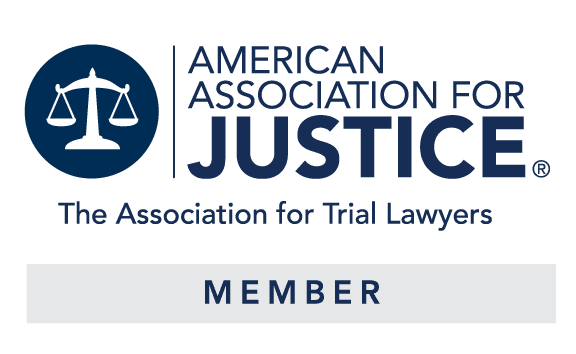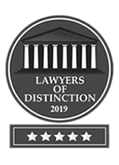
During the litigation process, in many instances, you will have a discussion with your lawyer about mediation. Mediation is a formal, non-binding, settlement negotiation which is facilitated with the help of a trained, neutral mediator.
Mediation can take the form of a full-day or half-day mediation.
A full-day mediation begins with a general session. A general session will include you and your attorney, as well as the opposing party, their attorney, and their insurance adjuster. This is likely the first time that all of these people will be in the room, at the same time. This is important, as all decision makers necessary to settle a case will be present.
During the general session, your attorney will present an overview of your legal arguments, as well as the facts and testimony which support your case. Similarly, the opposing party’s counsel will have the opportunity to present an overview of their position, and the facts and testimony supporting the same. These presentations give the mediator a better understanding of the legal and factual issues involved.
After the general session, you and your attorney will be assigned a room, and the opposing party, their attorney, and the insurance adjuster will be assigned another. You will likely not communicate directly with the other side for the remainder of the day. By being in separate rooms, it allows you and your attorney to speak frankly regarding the case, as well as the settlement offers which will be passed back-and-forth throughout the day. The mediator’s job is to take pieces of information and settlement proposals between the two rooms in an effort to get the case settled. The mediator, as a neutral third party, is in the unique position to identify the strengths and weaknesses in your case, as well as the strength and weaknesses in the opposing party’s case. The thought process behind this is that this information will allow you to make a better, more objective decision as to whether you should settle your case or not.
A half-day mediation works exactly the same as a full-day mediation; however, the parties will often forego the general session and get right down to negotiating given the shorter period of time.
At the end of a mediation, either an impasse will be declared by the mediator,
meaning the parties were not able to come to an agreement, or the case will be settled. If settled, before you leave, the parties, with the assistance of the mediator, will draft and execute a mediated settlement agreement. This document sets forth the terms the parties agreed to in order to draft the more formalized settlement documents at a later date.
Additionally, this document locks in the parties. That is, nobody is able to change their mind if a mediated settlement agreement is executed. Although your case has settled, you will not be walking out of mediation with a check. Any settlement payments are made after the formalized settlement documents have been drafted and executed by all the parties. Mediation is a good tool to not only attempt to settle your case prior to trial, but it is also a good way to speak directly to the opposing party and the insurance adjuster. This gives them a better understanding of what they are going to face at trial if settlement is not reached. Additionally, parties tend to put forth their most compelling evidence, so mediation is also a good tool for getting a sneak peek at the opposing party’s trial strategy.
Please do not attempt to determine if you have a compensable case. You must consult a relevant liability attorney who has the expertise and extensive knowledge necessary to determine who ultimately caused the harm and injuries you or a loved one suffered. Contact us for a free case evaluation here.
 Top Truck Accident Lawyer in Pasadena
Top Truck Accident Lawyer in Pasadena Best of The Best Attorneys
Best of The Best Attorneys Best of the Best Houston Chronicle 2021
Best of the Best Houston Chronicle 2021 Best Motorcycle Accident Lawyers in Houston 2021
Best Motorcycle Accident Lawyers in Houston 2021 American Association for Justice Member
American Association for Justice Member The National Trial Lawyers 2016 – (Top 40 under 40)
The National Trial Lawyers 2016 – (Top 40 under 40) Multi-Million Dollar Advocates Forum 2016 (Top Trial Lawyer)
Multi-Million Dollar Advocates Forum 2016 (Top Trial Lawyer) Million Dollar Advocates Forum 2019 (Top Trial Lawyer)
Million Dollar Advocates Forum 2019 (Top Trial Lawyer) America’s Top 100 Attorneys 2020 (High Stake Litigators)
America’s Top 100 Attorneys 2020 (High Stake Litigators) Lawyers of Distinction 2019, 2020 (Recognizing Excellence in Personal Injury)
Lawyers of Distinction 2019, 2020 (Recognizing Excellence in Personal Injury) American Institute of Personal Injury Attorneys 2020 (Top 10 Best Attorneys – Client Satisfaction)
American Institute of Personal Injury Attorneys 2020 (Top 10 Best Attorneys – Client Satisfaction) American Institute of Legal Advocates 2020 (Membership)
American Institute of Legal Advocates 2020 (Membership) Association of American Trial Lawyers 2018 - Top 100 Award recognizing excellence in personal injury law
Association of American Trial Lawyers 2018 - Top 100 Award recognizing excellence in personal injury law American Institute of Legal Professionals 2020 (Lawyer of the Year)
American Institute of Legal Professionals 2020 (Lawyer of the Year) Lead Counsel Verified Personal Injury 2020
Lead Counsel Verified Personal Injury 2020 The Houston Business Journal 2021
The Houston Business Journal 2021